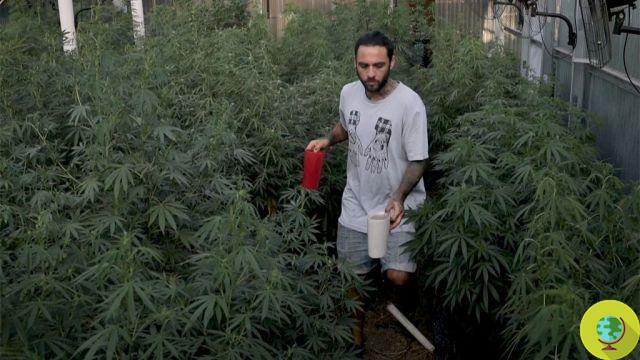
Fighting drug trafficking by legalizing the production, distribution and consumption of cannabis. This is the recipe chosen by Uruguay, which today is preparing to become the first country to undertake an all-round legalization, if its marijuana law is ratified in the Senate. As is likely to happen, despite resistance from the opposition that fears the use of harder drugs will be triggered.
Don't store avocado like this: it's dangerous
Fighting drug trafficking by legalizing the production, distribution and consumption of cannabis. This is the recipe chosen by Uruguay, which today is preparing to become the first country to undertake an all-round legalization, if its marijuana law is ratified in the Senate. As is likely to happen, despite resistance from the opposition that fears the use of harder drugs will be triggered.
Proving again to be at the forefront of social issues (see legalization, civil unions of same-sex couples or adoption for same-sex couples), the small South American country goes far beyond the measures taken by some US states, the Netherlands or Spain, which, in practice, tolerate production or sale of cannabis only in the private sphere. There proposal, unprecedented in the world, is the “povero” president Jose Mujica, which hopes, in this way, to discourage illegal consumption and trafficking. Last August received the widely shared yes of the Chamber.
The government, in fact, he is keen to emphasize that the norm is intended to regulate, not liberalize, the cannabis market. In practice, consumption is not being promoted, but an activity that until now caused some social problems: health problems for consumers and safety in the case of drug trafficking is being made lawful. It is no coincidence that last week he launched a social campaign with the slogan "every drug carries risks".
“This is an experiment - admitted Mujica last August, in an interview with AFP -. We can make a real contribution to humanity. We will be a test bed for a whole series of disciplines that address the problem and add new tools to the fight against drug addiction ”.
WHAT WILL HAPPEN - The pioneering experiment will allow registered Uruguayans of age to purchase up to 40 grams per month from a limited number of pharmacies. Registered growers will then be able to have up to six plants, while cooperatives with up to 45 members will be able to grow up to 99 plants. A government-run institution will be established to regulate the market and control prices and production levels, while advertising will be prohibited. In any case, the number of licenses will be limited.
However, law enforcement is fraught with challenges. A key question will be the pricing: the price of legal cannabis it will reflect the price on the black market. It will therefore be competitive to offer a better quality product that can be obtained safely. These are four or five cannabis strains that will sell for $ 1 per gram.
But there is no shortage of concerns about the possibility that illegal competition could reduce official prices, which will have to finance expensive and complex regulation. The chemical-pharmaceutical industry, meanwhile, has rejected the idea that recreational marijuana can be sold in pharmacies. What is certain is that for the first time the proceeds of the illegal market (if not all, at least part) they will return to the state coffers.
Roberta Ragni
READ also:
Uruguay: the House says yes to the legalization of marijuana
Legalization of Marijuana: What Consequences for the Environment?
At the home of Jose Mujica, the “poor” president that everyone would like to have


























